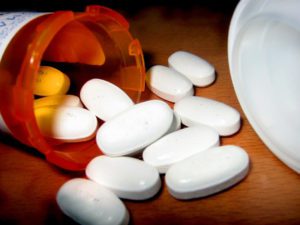One in 10 motorists have driven after taking illegal drugs
Drug-driving in the UK has reached epidemic proportions, with potentially millions of motorists getting behind the wheel after consuming illegal drugs.

IAM say it’s time the Government took urgent action to address drug-driving before more lives are lost
A survey of 2,028 motorists by road safety charity IAM RoadSmart has revealed that 10% have driven in the 24 hours after taking illegal drugs.
This means that, of the 35 million people who possess a full driving licence in the UK, up to 3.5 million motorists may have driven while under the influence of illegal drugs – putting themselves and other road users at risk in the process.
Cannabis was found to be the most commonly used substance by drug-drivers, with one in 20 (5%) admitting to consuming the drug before driving a vehicle. The next most popular substance was cocaine, followed by ecstasy (MDMA) and speed (amphetamine) – all of which impair driving ability and increase risks on the roads.
Furthermore, 14% of survey respondents said that they would not stop a friend or family member who was planning to drive after taking illegal drugs.
IAM RoadSmart’s annual Safety Culture Report also reveals that 58% of motorists believe that driving while under the influence of illegal drugs is a bigger problem compared to three years ago.
Department for Transport (DfT) data shows the number of drug-driving incidents has reached record highs in the UK. Drug-related collisions and casualties have surged by over 260% in the last decade, with 44% of these offences being committed by previous offenders.
While a consultation last year explored whether drug drivers should be required to undertake rehabilitation courses before being allowed back behind the wheel, the results haven’t been announced.
Neil Greig, director of policy and research at IAM RoadSmart, said: “Our research offers a sobering insight into how Britain’s drug epidemic is rearing its ugly head on our roads. Illicit drugs can profoundly impair a motorist’s judgement, reaction times and alertness while driving, and some of the effects can last for days after a drug has been taken. As can be seen in the DfT statistics, this is causing havoc on the nation’s roads.
“But with nearly half of the offences being committed by previous offenders, and casualties increasing year-on-year, it is about time that the Government took urgent action to address this issue before more lives are tragically lost.
“And while drug use is a wider issue in the UK, we would strongly urge people who may have taken something not to get behind the wheel and create a dangerous, and potentially fatal, situation.”
The IAM has called for development of a rehabilitation option for drug-driving, with a particular focus on illegal substances, that is effective in reducing reoffences. It’s also said it wants to work with partners, in government and the health sector, to raise awareness and advise on how prescribed medications can have an impact on a driver’s judgement while behind the wheel. The road safety charity has also urged the Government to develop an outcome to its drug-drive consultation.












